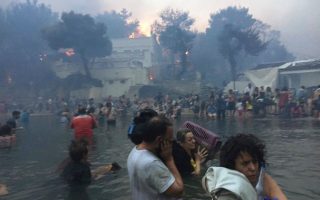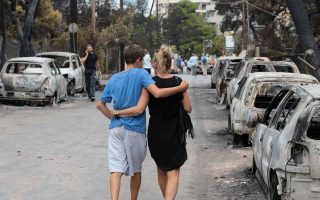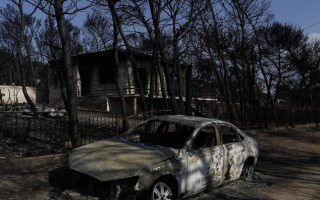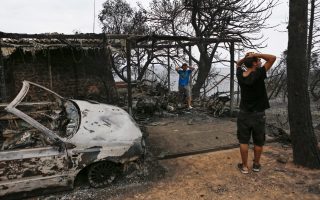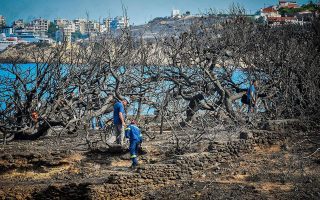A long, hard and lonely road to recovery
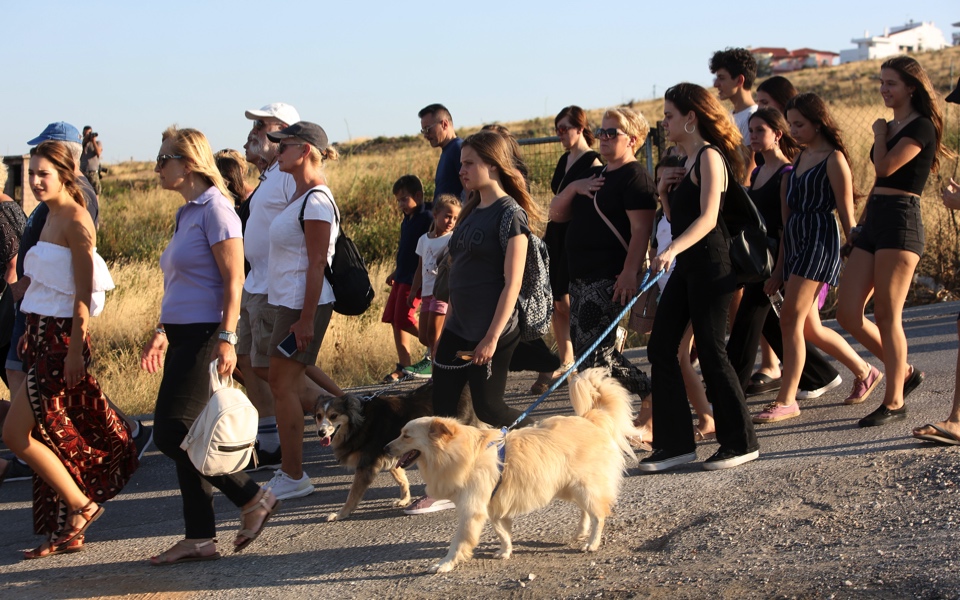
Imagine that you have been in the intensive care unit of an Attica hospital for weeks, unable to stand on your own two feet, and with only sporadic visits from family members. Every one of your visitors wears a white gown over their clothes, along with protective overshoes, a cap and a sanitary mask – not due to fears they might be contaminated but in order not to transmit any bacteria to you. This was a reality for some of the victims who were hospitalized after last year’s devastating wildfires in eastern Attica. It is now just over a year since the day those individuals ran for their lives from the deadly flames.
Depending on where and the degree to which they had been burned or the surgical procedures they had to undergo, many of those people could not even move from their hospital beds. Severe burns can causes problems with the muscles and tendons under the skin while skin grafts also come with risks, so patients have to exercise and move to avoid more permanent damage or additional surgery. Physicians visited the Mati burn victims daily to move the parts of their bodies that they themselves were unable to.
But this was not the most painful procedure they had to experience. During the first stages of their hospitalization, each removal and replacement of gauze was extremely difficult. Patients would feel as though their skin was being forcibly peeled off. As time went by, a few – mostly the younger ones – started to replace the gauzes on their legs by themselves. For those who had lengthy hospital stays, even these small acts of self-care gave them the precious feeling that they could help themselves in some way.
Disasters tend to remain at the forefront of our minds for their duration and during the immediate aftermath, up until the list of the people killed or injured is more or less settled. It is a normal human reaction to want to forget events that upset us or make us uncomfortable. How can one live in the present or move on to the future while clinging onto pain?
But the fire’s victims will never forget the disaster at Mati. They will live with fleeting memories, pains that persist, and encounters with individuals who look at them pryingly, with no idea of the trauma they have lived through. Despite all that, these people have returned to their lives with dignity. The same dignity should characterize the actions and preventive measures of the state. There should be no gaps in meeting the victims’ needs. Nobody else should have to go through what they went through.
